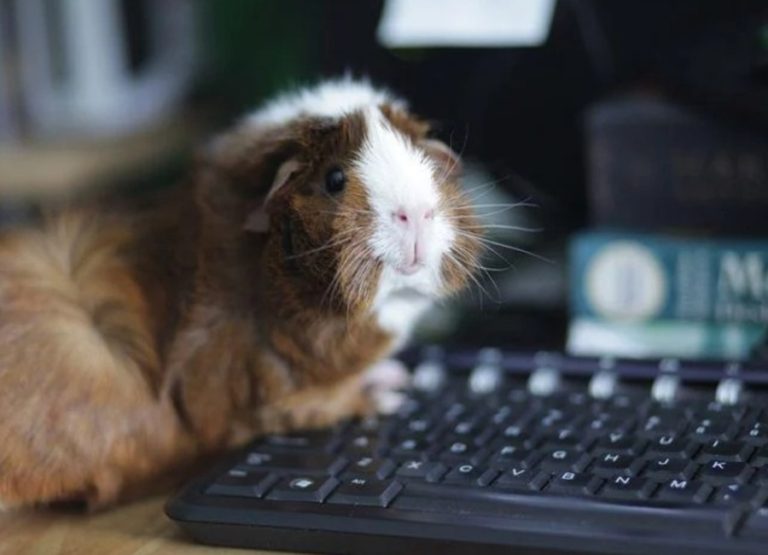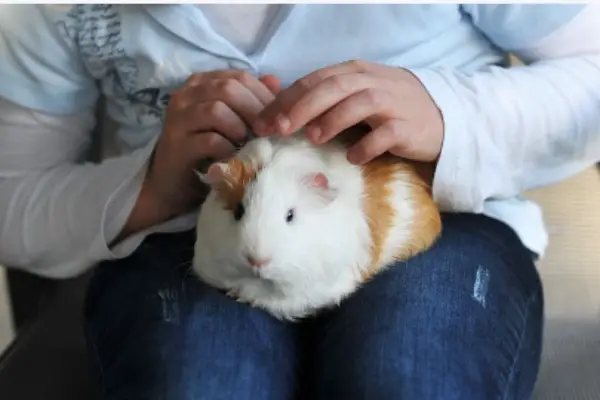Can Guinea Pigs Eat Grapes [Helpful Tips]
![Can Guinea Pigs Eat Grapes [Helpful Tips] Can Guinea Pigs Eat Grapes](https://petcreeks.com/wp-content/uploads/2022/04/Can-Guinea-Pigs-Eat-Grapes.jpg)
Can guinea pigs eat grapes? Let’s find out together…
If you’re a guinea pig owner, you may be wondering if your furry friend can enjoy some grapes as a treat. Well, the good news is that the answer is yes!
Guinea pigs can definitely eat grapes, but as with any treat, moderation is key.
Keep reading to learn more about the nutritional benefits of grapes for guinea pigs and how to safely introduce them to your pet’s diet.
Can Guinea Pigs Eat Grapes
Yes, guinea pigs can eat grapes, but they should be given in moderation, as grapes are not toxic to guinea pigs, but they are high in sugar, so it is recommended to limit their intake to one to three grapes per week.
It is also important to introduce new foods gradually and monitor your guinea pig’s reaction to them.
Potential Benefits of Feeding Grapes to Guinea Pigs
Here are some potential benefits of feeding grapes to guinea pigs:
- Good source of Vitamin C – Guinea pigs are unable to produce their own Vitamin C, and grapes are a good source of this essential nutrient that is important for maintaining their health.
- Antioxidant properties – Grapes are high in antioxidants that can help reduce inflammation and oxidative stress in guinea pigs.
- Promotes hydration – As grapes have high water content, they can help promote hydration in guinea pigs.
- Good source of fiber – Grapes can also provide some amount of dietary fiber to guinea pigs.
- Taste improvement – Grapes can help vary the taste in a guinea pig’s diet and provide some variety.
- Can boost the immune system – vitamin C and antioxidants in grapes can help boost the immune system of guinea pigs.
- Aids vision – The Vitamin C in grapes can help maintain a guinea pig’s vision by supporting the health of their eyes.
- Can promote digestive health – The fiber content in grapes can promote digestive health in guinea pigs by helping to regulate bowel movements.
Potential health risks of feeding grapes to Guinea Pigs
Here are some potential health risks of feeding grapes to guinea pigs:
- Risk of Diabetes: Guinea pigs are prone to getting diabetes, which grapes’ high sugar content might make worse.
- Choking risk: Grapes are tiny and spherical, and if they aren’t broken up into little pieces, they can be a choking hazard for guinea pigs.
- Allergic Reactions: Some guinea pigs may have an allergy to grapes, which might result in adverse symptoms including rashes, itching, and respiratory issues.
- Digestive Problems: Guinea pigs have delicate digestive systems, and eating too many grapes can cause problems including constipation, bloating, and diarrhea.
- Obesity: Grapes contain a lot of sugar, which when consumed in excess by guinea pigs can cause weight gain and obesity.
- Teeth Issues: Guinea pigs may get tooth rot and overgrown teeth as a result of grapes’ high sugar content.
- Risk of Kidney Stones: Grape’s high calcium content raises the possibility of kidney stones in guinea pigs.
How to Feed Grapes to Your Guinea Pigs
Here is the step-by-step process for feeding grapes to guinea pigs:
- Select fresh grapes that are ripe, seedless, and clean.
- Rinse the grapes thoroughly with water.
- Cut the grapes into small pieces or halves, depending on the size of your guinea pig.
- Feed the grapes to your guinea pig as a treat, in moderation. Guinea pigs should have a balanced diet that consists mainly of hay and pellets, and treats should only be provided in small amounts.
- Remove any uneaten grape pieces: Any grapes left in your guinea pig’s cage after a few hours should be removed to prevent them from going bad and attracting bugs.
Precautions to take when feeding grapes to Guinea Pigs
Here are some safety guidelines to follow:
- Introduce grapes into your guinea pig’s diet gradually to ensure they can tolerate them without any digestive upset.
- Start by giving your guinea pig a small piece of grape about the size of their head or less, and observe their reaction for a few hours.
- Make sure the grapes are organic and thoroughly washed to remove any traces of pesticides or chemicals.
- Remove any grapes that have gone bad or have signs of mold or rot, as they can make your guinea pig sick.
- Feed grapes as a treat or a supplement to your guinea pig’s regular diet of hay, vegetables, and pellets. Grapes should not make up a significant portion of their diet.
- Avoid feeding grapes with seeds, as they can pose a choking hazard or cause digestive problems.
- Do not feed your guinea pig grapes that have been stored in or near a refrigerator with harmful chemicals like ethylene.
Different ways of incorporating grapes into the guinea pig diet
Here are some common ways of incorporating grapes into the guinea pig diet:
- Cut grapes into small pieces and mix them with your guinea pig’s regular food.
- Offer grapes as an occasional treat.
- Freeze grapes and offer them to your guinea pig as a refreshing summer snack.
- Make grape kabobs using pieces of grape and other fruits or vegetables and hang them in your guinea pig’s cage as a fun treat.
- Mix small pieces of grapes with other foods such as hay, pellets, and fresh vegetables to make a homemade guinea pig trail mix.
- Offer grapes as part of a larger fruit salad with other guinea pig-safe fruits like apples or melons.
It’s important to remember that grapes should be offered in moderation and as part of a balanced and varied diet that meets your guinea pig’s specific nutritional needs.
Related questions
Are grapes safe for guinea pigs?
Grapes are generally safe for guinea pigs to eat in small quantities. However, they should be washed thoroughly before feeding them to your guinea pig.
What are the benefits of feeding grapes to guinea pigs?
Grapes contain vitamins and minerals that are beneficial for guinea pigs.
They are a good source of vitamin C, which is essential for their overall health.
How many grapes can I feed my guinea pig?
You can feed your guinea pig a small number of grapes once or twice a week.
It is important not to overfeed them as grapes contain natural sugars, which can lead to weight gain and health issues.
Can feeding grapes to my guinea pig cause any health problems?
In large quantities, grapes can cause diarrhea or other digestive issues in guinea pigs.
It is important to only feed them grapes in moderation as part of a balanced diet.
What other fruits and vegetables are safe for guinea pigs to eat?
Guinea pigs can eat a variety of fruits and vegetables such as carrots, cucumbers, tomatoes, apples, tangerines, strawberries, and leafy greens like spinach and kale.
It is important to introduce new foods slowly and in small quantities to avoid upsetting their digestive system.
Find out more about why your guinea pigs are not eating as usual.
Conclusion
In conclusion, grapes can be a tasty treat for your guinea pig, but only in moderation.
As with any new food, it’s important to introduce grapes slowly and monitor your pet’s reaction.
Remember, a healthy diet for your guinea pig should consist mainly of hay, fresh vegetables, and a small amount of fruit as a treat.
By following these guidelines, you can ensure that your furry friend stays happy and healthy for years to come!

![Can Guinea Pigs Eat Tomatoes [Pros & Cons] can guinea pigs eat tomatoes](https://petcreeks.com/wp-content/uploads/2022/04/can-guinea-pigs-eat-tomatoes.jpg)

![What Do Guinea Pigs Eat [Helpful Tips] What Do Guinea Pigs Eat](https://petcreeks.com/wp-content/uploads/2022/04/What-Do-Guinea-Pigs-Eat.jpg)
![Can Guinea Pigs Eat Mandarins [Pros & Cons] Can Guinea Pigs Eat Mandarins](https://petcreeks.com/wp-content/uploads/2022/04/Can-Guinea-Pigs-Eat-Mandarins-768x614.jpg)

![What Can Guinea Pigs Not Eat [14 Unsafe Foods] What Can Guinea Pigs Not Eat](https://petcreeks.com/wp-content/uploads/2022/04/What-Can-Guinea-Pigs-Not-Eat.jpg)